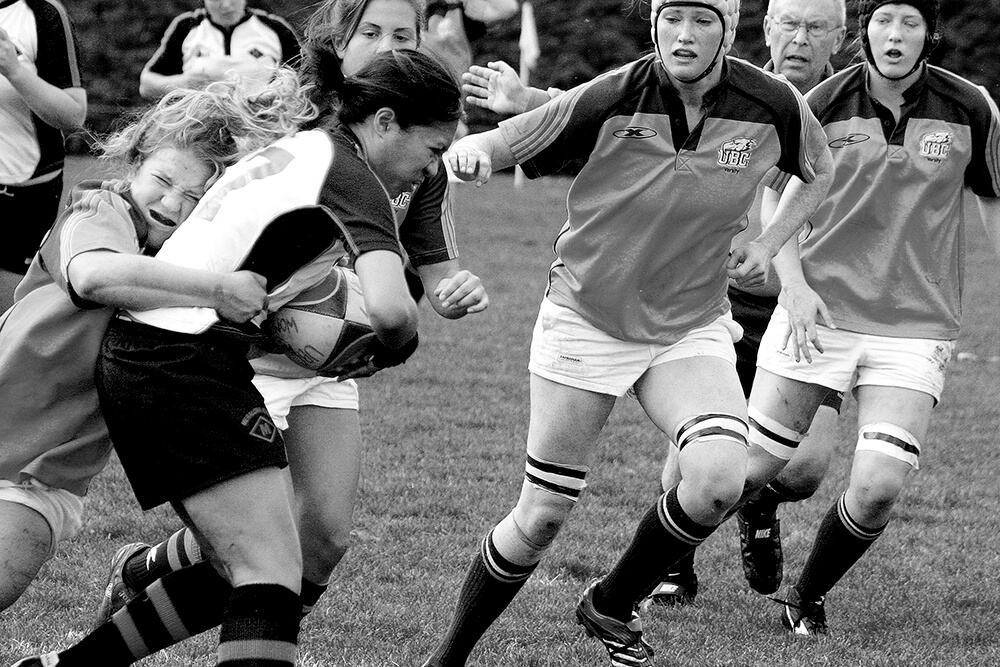There are few global governing bodies of sport that remain unconcerned about the insidious nature of online abuse targeting their athletes, officials and, in some cases, volunteers. It was perhaps inevitable, with the growth of social media platforms, that some people would exploit their ubiquity for nefarious purposes, but it is reasonable to conclude that few areas of life have been as affected in this regard as sport. In May 2024, the IOC announced that it would be using an AI-powered (Artificial Intelligence) monitoring service to protect athletes and officials at this Summer’s Games in Paris. Indeed, it is now commonplace for global governing bodies of sport to collaborate with AI companies to remove negative and harmful commentary on their official channels, whilst some extend this service to competing teams, nations, and athletes. Whether its FIFA’s longstanding association with Signify or the FIA’s relationship with Arwen AI, the benefits to removing harmful posting is, by now, well accepted. These include encouraging those who may have left social media platforms due to feeling ‘unsafe’ – mostly female fans – to return and the benefits of creating a more social, welcoming site has proven advantages to global brands as many of those originally turned off by hateful commentary are key to building their brand (Arwen AI, 2024).
Whereas historically sports have always provoked emotional responses amongst spectators and competitors alike, there traditionally existed a level of control, aligned with contemporary societal norms, that ensured it remained in check. Whilst this meant in some European countries, for example, a concerning rise in fan-related disorder at football matches during the 1970s and ‘80s, the capacity of authorities to respond to these was clearer. In contrast, the increasing ‘mediatisation’ of this realm, however, in which sport, entertainment and various forms of media have become intrinsically, even symbiotically, entwined, has forced observers to consider the full extent of this modern relationship and, moreover, the degree to which discourse surrounding sporting events is shaped, even informed, by social media reactions to it.
An often-posed question in this regard concerns the motivation of individuals to partake in online hate speech. For many others, because it is such a harmful activity, it is challenging to understand the rationale of those who continue to engage in it. Faulkner and Bliuc’s (2016) seminal research work seeks to posit an explanation for this, claiming that proponents of online hate deploy moral disengagement strategies that somehow allow them to rationalise these actions as being, in fact, those of an alter-ego and thus a vicarious undertaking detached from reality. Whatever the exact motivations, the increased proliferation of online hate speech is concerning. In respect of this, Willard’s (2007) typology of this realm serves to classify the identifiable forms this activity now takes. These include so-called flaming (sending threatening or rude messages), harassment (sending offensive messages repeatedly), denigration (the posting of innuendo or other forms of misinformation), cyber stalking (harassment that include threats to harm), impersonation, outing (revealing information about someone they would prefer to keep private) and exclusion. Importantly, however, this online hate not only serves to denigrate named individuals and those they are thought to represent, but it can also provoke hostility towards them. On occasions, the latter may have tragic consequences, with acts of material damage, physical harm, and even loss of life recorded in recent years.
In February 2024, the FIA, motorsport’s global governing body, published the findings from the first ever ‘Barometer’ survey into online abuse in sport. Two key outcomes from this piece of research, which reflected the view of 23 international sporting federations, were particularly stark and received significant media coverage. The overwhelming majority of respondents to the survey expressed a view that if the toxic nature of social media commentary around sport, emerging from a minority of users, was not addressed that it would inevitably lead to some of sport’s most talented athletes leaving their sport. Similarly, two in every three respondents to the survey confirmed their belief that the social media platforms could be more active that they currently are in helping to address this issue, characterised instead as ‘absentee landlords’. In the FIA’s case, it was online abuse directed at a female official at an F1 Grand Prix event, including a death threat, that prompted it to act and meant its current President, Mohammed Ben Sulayem, led a personal crusade to tackle the matter, principally through the formation of a coalition of major governing bodies of sport in the form of a movement referred to as ‘United Against Online Abuse’ (UAOA).
At a recent UAOA conference held at the FIA headquarters in Paris in late May 2024, Arwen AI Co-founder Matt McGrory, confirmed that, based on the firm’s research, removing harmful content quickly serves to prevent toxicity from spreading and, significantly, halves the duration of the toxic event. This is of critical importance in controlling the ongoing impact of online abuse and underlines the benefit for all governing bodies of sport, and many teams, of having some form of monitoring policy in place to protect their athletes and officials. After 12 months of collaboration between the FIA and Arwen AI there has been a 56% increase in engagement on FIA social media channels, ensuring the return of many users who may previously stopped posting on these sites. Its important to emphasise that this activity is not censorship as its primary focus is to remove comments that are harmful in nature and preserve the social site for well informed and, for the most part, well intended and constructive critical debate.
World Rugby has recently shown its determination to push back on the corrosive nature of online abuse by pursuing legal action against named individuals, leading to the first successful prosecution of an Australian citizen in March 2024. The person concerned had posted comments against a TMO official and his family at the 2023 Rugby World Cup in France and was identified and prosecuted in a landmark case that both confirmed how apparent online anonymity fails to inhibit accurate identification of such individuals and, also, a step change in the determination of sports governing bodies to pursue redress on behalf of their officials and volunteers when there is a clear justification and public interest in doing so. As it seems likely to be the case, given this legal precedent, that other governing bodies will follow the lead provided by World Rugby meaning that there may be few places left to hide for those intent on posting online harm in the sporting realm.




